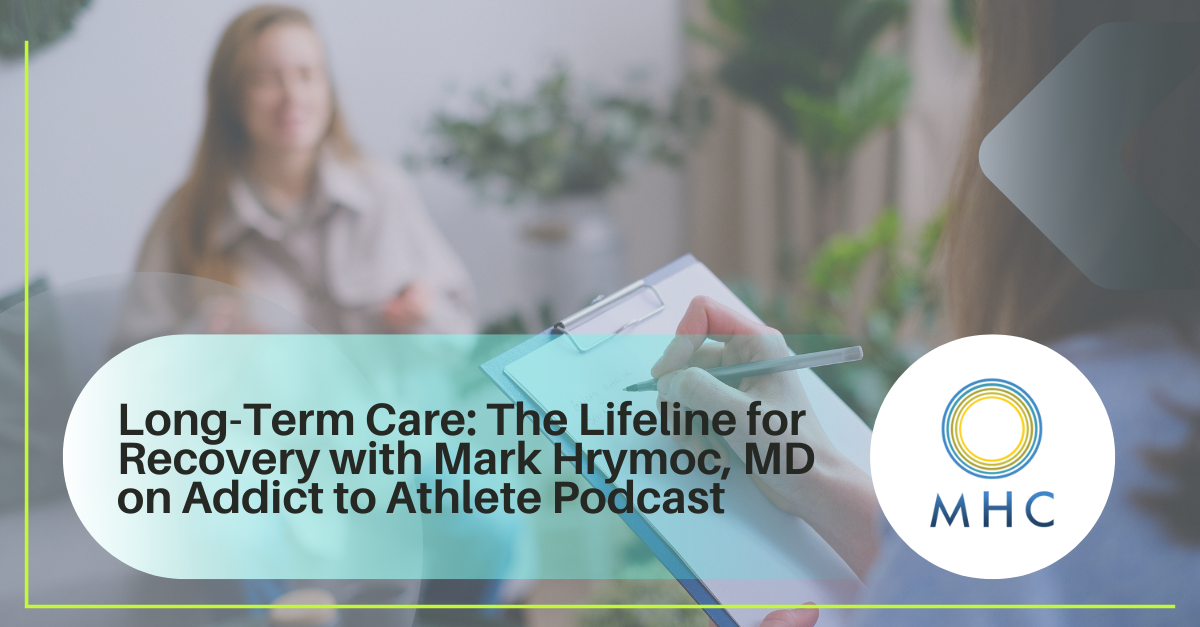Addiction isn’t something that can be rushed or “fixed” in a week. In the Addict to Athlete podcast episode “Long-Term Care: The Lifeline for Recovery,” Mental Health Center co-founder and addiction psychiatrist Mark Hrymoc, MD joins host Coach Blu Robinson to discuss why true recovery requires long-term treatment, compassion, and individualized care—not quick solutions.
Why Long-Term Care Matters in Addiction Recovery
As Dr. Hrymoc explains, addiction is a chronic medical condition. Much like diabetes or hypertension, it requires ongoing care and support. Short-term detox or brief treatment can remove substances from the body, but without continued care, patients are at high risk for relapse or medical complications.
Long-term care gives patients the opportunity to:
-
Stabilize the brain and body
-
Rebuild trust, relationships, and routine
-
Address underlying mental health conditions and trauma
Medication-Assisted Treatment (MAT): A Tool for Stability
A central focus of the episode is Medication-Assisted Treatment (MAT). Dr. Hrymoc explains how medications like Suboxone reduce cravings and withdrawal symptoms without producing a “high.” MAT isn’t replacing one substance with another—it’s a medical treatment that helps restore balance so patients can fully participate in therapy and daily life.
Mental and Physical Health Are Deeply Connected
Recovery isn’t only about stopping substance use. Mental health plays a major role. Many people struggling with addiction also experience depression, PTSD, ADHD, or unresolved trauma. Ignoring these conditions can make recovery far more difficult.
Dr. Hrymoc also discusses:
-
The dangers of rapid detox
-
Mixed evidence around cannabis as treatment
-
The potential of ketamine and psychedelics for treatment-resistant depression and trauma
-
How pain is influenced by both physical and emotional factors
Healing Requires Trust and Compassion
Above all, recovery is about people—not just protocols or prescriptions. Dr. Hrymoc emphasizes the importance of trust, nonjudgmental support, and meeting patients where they are. Long-term relationships often make recovery sustainable.
🎧 Listen to the full episode:
Ready to Take the Next Step?
If you or someone you care about is navigating addiction or co-occurring mental health challenges, support is available. The clinicians affiliated with Mental Health Center offer compassionate, evidence-based treatment tailored to each individual.


